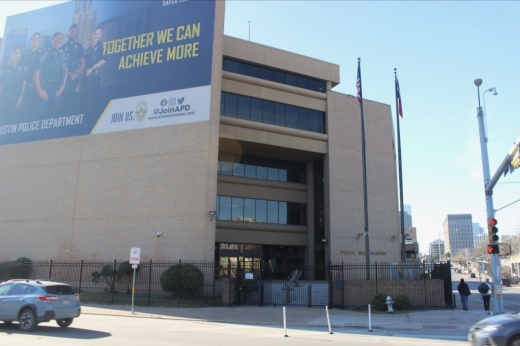The package, originally drafted by District 5 Council Member Ryan Alter, passed with adjustments from Mayor Kirk Watson that he said were crafted to support officers and maintain the Austin Police Department force amid an uncertain time.
“I think this is the responsible step forward. I think it’s time for us to stop talking past each other and just trying to blame each other, and instead come together and figure out what is the best way forward,” Alter said after council's vote. “Hopefully, that means both sides come to the table and reach an agreement. But should that not happen, we are taking the responsible step today to make sure that our community continues to be served and that we continue to value the officers in our community.”
Austin's current labor agreement with its police union will expire March 31. The city will default to state-established rules for the APD, including officer pay, promotions, training and discipline, if a new deal is not in place by then.
Council's action to temporarily extend aspects of the city's policing systems is the latest step in a weekslong debate over the city's next police contract.
While Austin's labor relations team and the APA announced they had tentatively agreed on a four-year contract in early February, council has not formally considered that proposal and instead opted to direct staff negotiators and the police union to hash out a new one-year deal. Most city leaders said they backed that plan to allow a May election over two police oversight measures to take place before a longer-term meet and confer agreement is established.
“As a mayor—and I believe I can speak for probably all of the council members, but I’ll just say that I know for a few—when the community comes to you with a petition like that, there is at least some obligation to allow for that community dialogue to go forward,” Watson said.
While the one-year directive passed 9-2 last week, some council members and city staff have expressed reservations about tabling the four-year deal given concerns that portions of the May ballot items are either illegal or could only be implemented through the labor negotiating process, not by voters.
With council's Feb. 23 approval of the temporary measure, the existing police payment framework will remain in place alongside compensation for overtime and court or on-call staffing. Special pay for extended service time and higher ranks, specific officer duties, and certain certifications or educational achievement as well as accruals for vacation and sick time are also maintained.
The ordinance also sets the ability of the Office of Police Oversight to investigate officer misconduct complaints with access to APD records.
The amended ordinance is valid only for one year beyond the potential expiration of the current police contract.
Watson said his changes to Alter's original proposal could help encourage officers to remain with the APD given potential concern among police about the contract standoff and threats of mass resignations and retirements made by the APA. That action directed interim City Manager Jesús Garza to weigh additional financial support for officers, including base pay hikes, retention incentives and bonuses for cadets who complete training.
“This is a demonstration of how strongly we feel: We’re going to safeguard our police officers, but we’re also going to enhance the system so that we actually can be fully staffed,” Watson said.
So far, the APA has said it will not return to the bargaining table to work on the shorter one-year option and would not negotiate against itself. APA President Thomas Villarreal told Community Impact that council's approval of the interim ordinance will not change the union's stance.





